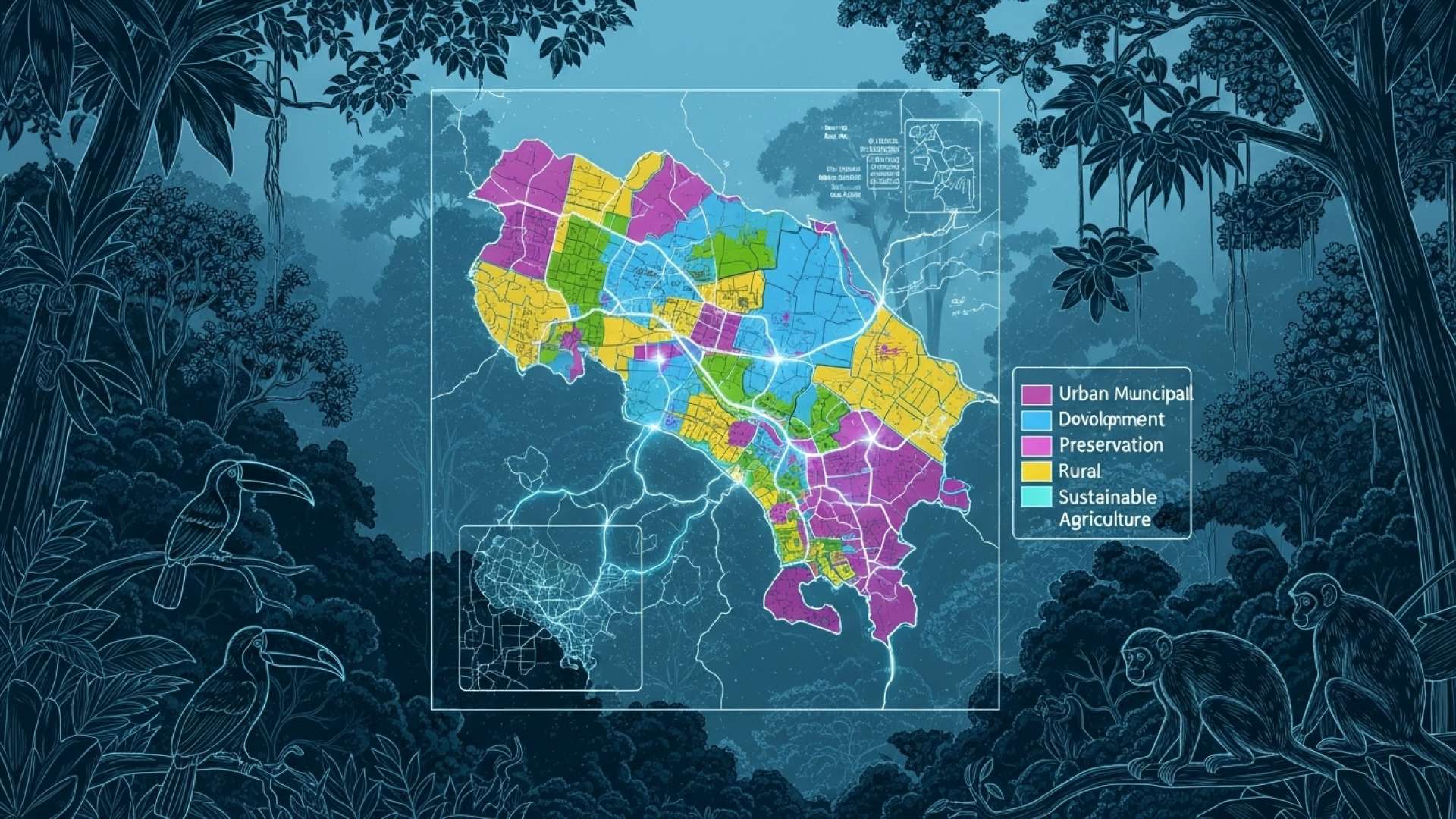San José, Costa Rica — Costa Rica is embarking on a significant initiative to enhance urban and rural planning across 23 municipalities. A newly signed agreement will infuse over ₡792 million into improving regulatory plans, promoting sustainable development, and bolstering local governance. This strategic partnership between the Mixed Institute of Social Aid (INVU) and the Institute of Rural Development (INDER) marks a crucial step towards a more organized and resilient future for the nation.
The agreement, spearheaded by INVU Executive President Gabriela Madrigal Garro and INDER Executive President Ricardo Quesada Salas, will provide technical assistance, methodological guidance, and crucial financial resources to the selected municipalities. The project will unfold in stages, with dedicated working groups supporting each municipality in developing or modifying their regulatory plans. This phased approach will ensure compliance with current technical and environmental regulations, with partial approvals granted throughout the process.
To understand the legal complexities surrounding urban planning in Costa Rica, we spoke with Lic. Larry Hans Arroyo Vargas, a seasoned attorney at Bufete de Costa Rica, who offered valuable insights into the current landscape.
Effective urban planning requires a delicate balance between fostering development and preserving green spaces. In Costa Rica, this balance is achieved through a complex interplay of national laws, municipal regulations, and environmental impact assessments. Developers must navigate these legal frameworks diligently, ensuring projects comply with zoning restrictions, building codes, and environmental protection standards. Failing to do so can lead to significant legal challenges, including project delays, fines, and even project cancellation.
Lic. Larry Hans Arroyo Vargas, Attorney at Law, Bufete de Costa Rica
Lic. Arroyo Vargas’s insight underscores a crucial aspect of sustainable urban development in Costa Rica: the intricate dance between progress and preservation. His emphasis on navigating the legal landscape is particularly pertinent, reminding us that responsible development isn’t just about ambitious blueprints, but also about meticulous adherence to the framework of laws and regulations designed to protect our natural heritage. We thank Lic. Larry Hans Arroyo Vargas for offering this valuable perspective on the complexities of urban planning in Costa Rica.
The initiative emphasizes capacity building within local governments. Through expert advice and training based on INVU’s Regulatory Plans Manual, municipalities will gain the skills and knowledge to effectively manage land use decisions. Regular collaborative sessions between the municipalities and INVU will foster ongoing feedback and analysis, ensuring continuous improvement and alignment with best practices.
This alliance reaffirms the commitment of our institutions to the country, by driving progress in territorial planning and enabling 23 rural cantons to access funding for the development of this crucial instrument. This is fundamental for promoting planned, resilient, and sustainable urban development.
Gabriela Madrigal, Executive President of INVU
The substantial investment of over ₡792 million underscores the importance of this undertaking. INDER will contribute the lion’s share, over ₡704.9 million, with INVU providing over ₡87.2 million. The initial agreement spans 36 months, with a potential extension of up to 24 months to accommodate any justifiable delays encountered by the municipalities.
The project also emphasizes a commitment to human rights and the eradication of child labor, aligning with national and international standards. This focus ensures that development proceeds ethically and responsibly, benefiting communities while upholding fundamental principles.
Both institutions are committed to promoting best practices in human rights and the eradication of child labor, in accordance with current national and international regulations. This inter-institutional agreement reinforces the joint commitment of INDER and INVU to territorial planning, integrated rural development, and the strengthening of municipal capacities for more efficient, technical, and sustainable land management.
Ricardo Quesada Salas, Executive President of INDER
This comprehensive approach to planning will not only enhance the physical landscape of Costa Rican communities but also strengthen local governance. By empowering municipalities with the tools and expertise to manage their own development, the initiative lays the groundwork for a more prosperous and sustainable future.
This initiative promises significant long-term benefits for Costa Rica, fostering a more balanced and sustainable approach to development that respects both urban and rural needs.
For further information, visit the nearest office of INVU
About INVU (Mixed Institute of Social Aid):
The Mixed Institute of Social Aid (INVU) is a Costa Rican institution dedicated to improving the quality of life for citizens through housing and urban development programs. INVU plays a vital role in promoting sustainable urban planning, providing technical assistance, and managing resources for housing projects. Their focus is on creating thriving communities and improving living conditions for Costa Ricans.
For further information, visit the nearest office of INDER
About INDER (Institute of Rural Development):
The Institute of Rural Development (INDER) is a Costa Rican government agency focused on promoting economic and social development in rural areas. INDER works to improve infrastructure, support agricultural initiatives, and empower rural communities. Their efforts are key to ensuring balanced development across Costa Rica and enhancing the quality of life for rural populations.
For further information, visit bufetedecostarica.com
About Bufete de Costa Rica:
Bufete de Costa Rica distinguishes itself through a profound commitment to legal excellence and unwavering ethical practice. The firm’s innovative approach to legal solutions, combined with a deep-rooted dedication to empowering Costa Rican society through accessible legal education, solidifies its position as a leader in the legal landscape. Their work transcends traditional client representation, reflecting a genuine desire to foster a more just and informed community.









